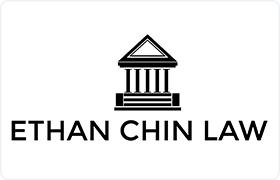 Upland Collection Lawyers, California
Upland Collection Lawyers, California
Sponsored Law Firm
-
 x
x

Click For More Info:
-
Ethan Chin Law
2400 East Katella Ave. Suite 800 Anaheim, CA 92806» view mapBankruptcy & Debt Passion. Dedication. Care.
We strive our best to provide efficient legal services at low cost so that families can worry less and take their first steps finding a solution to their issues.
800-908-6270
Sponsored Lawyers
1-8 of 8 matches
Real Estate, Consumer Rights, Wrongful Termination, Bankruptcy & Debt, Collection
Dedicated to fighting fraud, false advertising and abuse by corporations – We stand for the “little guy” (and gal). Our clients are victims of wrongdoing throughout the United States.
(more)


 Ethan Chin Anaheim, CA
Ethan Chin Anaheim, CA Practice AreasExpertise
Practice AreasExpertise

